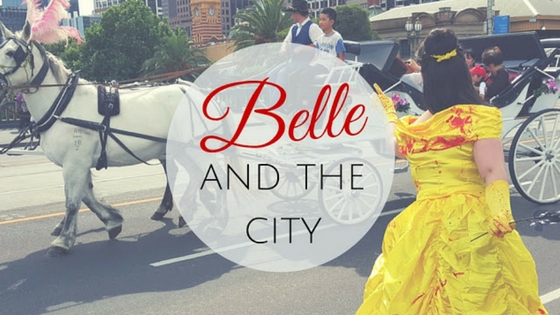Eurovision Song Contest and controversies
Are you wearing your unicorn onesie and have your cheeky score chart ready? Good, because it’s Eurovision time! Also, drink a sip everytime you see a rainbow flag and down the whole glass if a Scandinavian country gives twelve points to a Southern nation. By the way, Romania brought Yodeling to Eurovision way before that kid brought it to Walmart.
In a nutshell: the Eurovision song contest was created not only to improve bonding and morale in a war-torn Europe (1956), but also as a technological experiment in live television. Today, is not a simple evening of music but a musical journey and a cultural melting pot, the contest sees each of the participating singers rehearse their songs to offer the best possible show on the night of the Finale. Unfortunately, not all countries will be selected for the Finale, which is held in the previous year’s winner’s capital, but every country gets to vote for their favourite singers in the contest thanks to a combined voting system based on popular vote and a jury.
Nonetheless, it’s granted to see ‘the big five’ on the main stage: France, Germany, Spain, and United Kingdom; the fifth being Italy, which joined the elite only in 2010 after a fourteen year absence.
Controversy n1!
What’s amazing about the Eurovision song contest is that, because of its intercultural and historical setting, diversity and unity are blatantly celebrated. That’s why rainbows, unicorns, acceptance and drinking games are IN and criticism is OUT. The charts I mentioned earlier fall into this category and they're used to keep a personal score (1 to 10) of each song, look, performance, hotness, and level of trashiness. The latter gets a reverse score, 1=vanilla, 10=amazingly camp. It's not unusual to see the stage full of old grannys wearing traditional clothes playing tamburines, rollerblades and giant hamster wheels, half naked dancers, horse masks, everything glitter, outrageous costumes and performances. Some may even think certain singers aren't on Eurovision to win.
That's controversy n2!
There are some undeniably political structures put into play when it comes to voting. Before you scream:
Controversy n3!
Let me tell you, it is an actual thing and it’s called ‘regional bloc voting’. Some countries regularly award points to their neighbours. Rest assured, the Nordic states will vote for each other (Hi Scandinavia), just as the Baltic nations, the Balkan block, and the English-speaking countries. Of course, the former USSR countries need to vote for Russia or legend says they won’t have electricity the next day.
Alleged controversy n4 but we can’t really talk about it.
Last but not least, Australia is one of the Eurovision countries, and nobody knows how or why that happened. Although, I have to admit, it’s a useful Jolly card to have on hand and play whenever you really need to throw away a vote. Like, when you won’t want to vote for Russia.
Did someone say controversy n5?
Image: via
In a nutshell: the Eurovision song contest was created not only to improve bonding and morale in a war-torn Europe (1956), but also as a technological experiment in live television. Today, is not a simple evening of music but a musical journey and a cultural melting pot, the contest sees each of the participating singers rehearse their songs to offer the best possible show on the night of the Finale. Unfortunately, not all countries will be selected for the Finale, which is held in the previous year’s winner’s capital, but every country gets to vote for their favourite singers in the contest thanks to a combined voting system based on popular vote and a jury.
Nonetheless, it’s granted to see ‘the big five’ on the main stage: France, Germany, Spain, and United Kingdom; the fifth being Italy, which joined the elite only in 2010 after a fourteen year absence.
Controversy n1!
What’s amazing about the Eurovision song contest is that, because of its intercultural and historical setting, diversity and unity are blatantly celebrated. That’s why rainbows, unicorns, acceptance and drinking games are IN and criticism is OUT. The charts I mentioned earlier fall into this category and they're used to keep a personal score (1 to 10) of each song, look, performance, hotness, and level of trashiness. The latter gets a reverse score, 1=vanilla, 10=amazingly camp. It's not unusual to see the stage full of old grannys wearing traditional clothes playing tamburines, rollerblades and giant hamster wheels, half naked dancers, horse masks, everything glitter, outrageous costumes and performances. Some may even think certain singers aren't on Eurovision to win.
That's controversy n2!
There are some undeniably political structures put into play when it comes to voting. Before you scream:
Controversy n3!
Let me tell you, it is an actual thing and it’s called ‘regional bloc voting’. Some countries regularly award points to their neighbours. Rest assured, the Nordic states will vote for each other (Hi Scandinavia), just as the Baltic nations, the Balkan block, and the English-speaking countries. Of course, the former USSR countries need to vote for Russia or legend says they won’t have electricity the next day.
Alleged controversy n4 but we can’t really talk about it.
Last but not least, Australia is one of the Eurovision countries, and nobody knows how or why that happened. Although, I have to admit, it’s a useful Jolly card to have on hand and play whenever you really need to throw away a vote. Like, when you won’t want to vote for Russia.
Did someone say controversy n5?
Image: via



Comments
Post a Comment